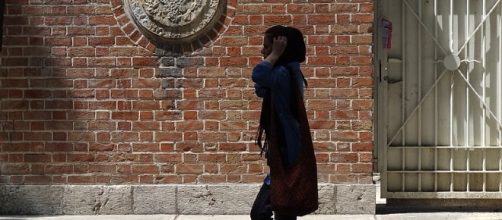On July 16, Mizan, the mouthpiece of the Iranian judiciary, announced that Xiyue Wang, an American student completing his dissertation at Princeton University, had been sentenced to 10 years in prison. The charges against him were issued for his alleged espionage which included “gathering information” and “infiltration” according to judicial spokesman Gholam Mohseni-Ejei.
Unfounded accusations
These accusations have been heavily disputed by Wang’s colleagues at Princeton. According to Stephen Kotkin, his academic advisor, everything Wang did in carrying out research for his Eurasian history Ph.D.
was “normal” and “standard practice for researchers,” Vox News reported.
The arrest of Wang comes just a month after the death of Otto Warmbier, another American who was arrested in North Korea. Warmbier was arrested in January of 2016. Although he was sentenced to 15 years of prison labor, he was released back to the United States in June. He died on June 13 as a result of a neurological damage sustained while in North Korean custody. The Trump administration responded by “once again condemning the brutality” of the North Korean regime, and promising that it would “be able to handle it”.
It is easy to see then, that the Wang's sentence will portend a dark turn for US-Iran relations. On Monday, the Trump administration released a statement which expressed satisfaction with Iran’s compliance with the Joint Committee Plan of Action (the nuclear deal inked by former U.S.
President Barrack Obama in 2015). However, according to the New York Times, the statement came only after Trump argued with his advisors for hours, indicating that he does not share the same positive attitude towards Iran.
Conservatives in Iran strike
Yet, Trump is not alone in holding opinions that differ from the rest of his government. Hassan Rouhani, Iran’s moderate president, re-elected in May, has been having a difficult time as well. His brother, Hossein Fereydoun was arrested on politically-motivated corruption charges–on the same day that Wang’s sentence was announced by Iranian media. These actions point to more forceful movements by Iran’s conservative factions against Western-leaning entities in the government, especially Rouhani.
Trump ostracizes Tehran
Relations are already at a low point. Trump came into office offering none of the carrot-and-stick incentives Obama had pursued with Iran. Indeed, in his first weeks in office, he actually increased sanctions targeting Iran's ballistic missile program.
Earlier this year, Trump was hosted by the Saudi royal family in Riyadh. There, he signed a multi-billion dollar arms deal with Saudi Arabia, Iran’s greatest geopolitical opponent. In his first speech on foreign soil, Trump suggested that all nations should “isolate Iran” because of its role in spreading “chaos and destruction" across the Middle East.
The arrest of Wang seems to be an act of obstinacy on the part of the Iran’s conservatives, largely in response to Trump’s inflammatory comments. With four other American citizens already languishing in Iranian prisons, the arrest of yet another is an ominous sign for the future of US-Iran relations.


